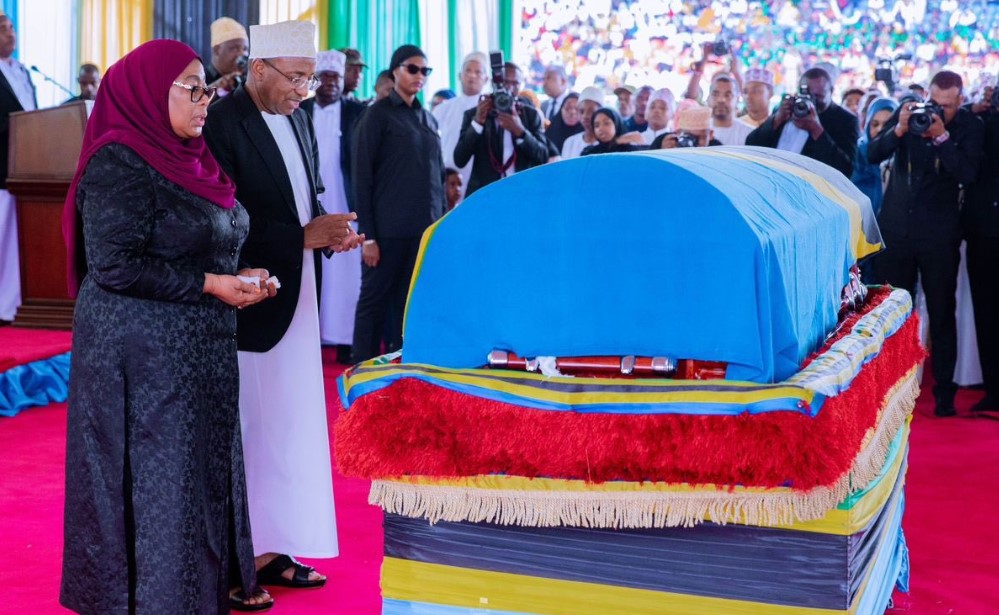Tanzania’s second president, Ali Hassan Mwinyi, was laid to rest on Saturday evening in Mangapwani village in Zanzibar’s Unguja Highland.
This follows the final prayers conducted at Zinjbaar Mosque in Mazizini, Zanzibar, per Islamic traditions.
Mwinyi died on February 29 at the age of 98 after battling lung cancer.
Tanzania’s military honored the late Mwinyi with a 21-gun salute as a section of family members and close relatives interred his body at its final resting place.
President Samia Suluhu hailed Mwinyi for his pivotal role in steering Tanzania towards multi-party politics and recalibrating the country from the socialist Ujamaa policies.
Did you read this?
Speaking when she presided over the state funeral proceedings at Amaan Stadium, President Suluhu praised the late Mwinyi, who led Tanzania between 1985 and 1995, for his pivotal role in steering Tanzania towards multi-party politics and expanding democratic freedoms.
“Mzee Mwinyi led Tanzania diligently after taking over the leadership role, safeguarding human rights while embracing differing viewpoints from the government of the day,” Suluhu said.
She further recognized the late President for heralding a digital age and championing the independence of the media in the once-conservative country.
“He allowed independent media, including radio and television stations, to flourish without hindrance, and empowered the citizenry to keep the government in check.”
Ali Hassan Mwinyi, born in Kivure village, Pwani region, in 1925, served as Tanzania’s second president, succeeding President Julius Nyerere, who died in October 1999.
Before assuming the presidency, he held notable positions, including Interior Minister and Vice President.
He also chaired the ruling party, Chama Cha Mapinduzi (CCM), from 1990 to 1996.









